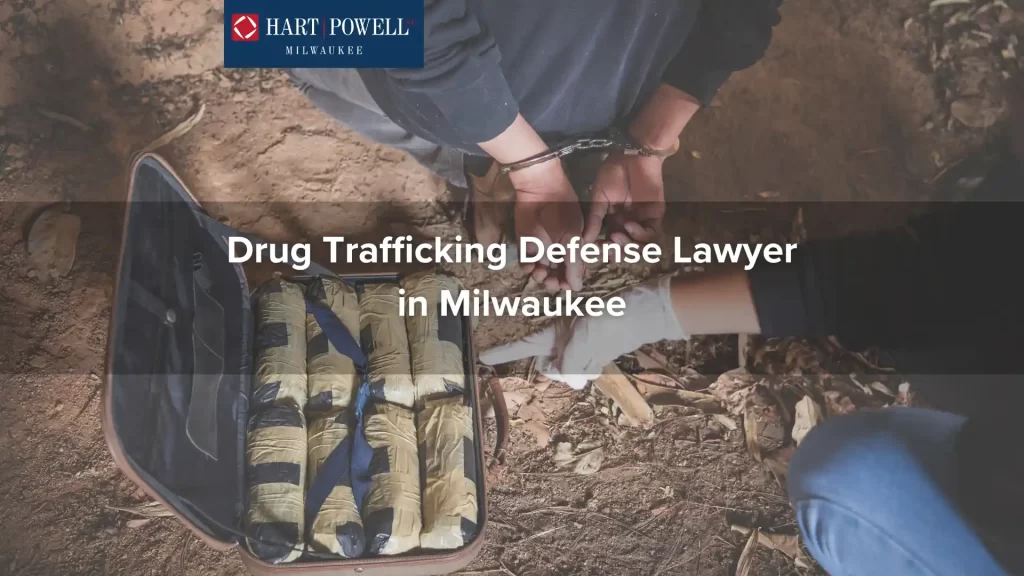
If you or a loved one has been charged with a federal drug trafficking offense in Milwaukee, you’ll want to have an experienced criminal defense attorney step in to help protect you from the often-harsh punishments that can come with a conviction for one of these crimes.
Drug trafficking is a federal criminal offense. It includes a wide range of activities. In general, drug trafficking is when a person manufactures, distributes, or possesses any illegal narcotics. Federal drug trafficking charges include when an individual possesses unlawful narcotics with the intent to dispense them, or when an individual manufactures with the intent to distribute. Federal drug trafficking also consists of the manufacture or possession of legal drugs with the intent to illegally distribute those drugs.
Because this definition is so broad, some activities that individuals consider simple possession will actually qualify as federal drug trafficking. The difference is essential because federal charges for drug trafficking carry much weightier fines and have mandatory minimum sentencing guidelines that can lead to lengthy incarceration.
Drug trafficking is a felony. You can be charged with drug trafficking without any evidence of your intent to distribute or manufacture drugs if you have large quantities of a drug, or cash, in your possession. Law enforcement can assume your intent to sell, which is a federal crime.
Mandatory Minimum Sentencing Laws
Mandatory minimum sentencing laws were enacted in the 1980s. These laws apply minimum charges to any person convicted of federal drug trafficking.
Whereas before these laws, and in other criminal cases, defendants were judged and convicted based on the specifics of their situation, mandatory minimum sentencing laws give courts a specific set of rules that apply based on the defendants:
- Type of drug possession.
- Weight of the drug possession.
- The number of previous convictions.
Other contextual elements to a case can include whether bodily injury resulted from a controlled substance, if the substance was trafficked in a particular space such as a school zone, if an individual is considered a leader of a drug trafficking team, or if another charge is concurrent with the drug charge, such as use of a firearm in tandem with drug trafficking.
For example, a court may hear the case of a person who faces a federal drug trafficking conviction for possessing 500 kilograms of marijuana.
If this is the individual’s second conviction, for instance, this weight and type of drug carry specific minimum sentencing laws, in particular not less than ten years in prison or, if the trafficking caused death or severe injury, a mandatory life sentence.
Other drugs, weights, and convictions produce additional predetermined fines and jail sentences. Generally, second offenses double the penalties of first offense convictions.
This means that there are thresholds for what is considered federal drug trafficking based on the weight and type of narcotics in possession or being manufactured.
Federal drug trafficking laws also provide maximum sentencing, so there are limits to the fines and length of jail times that an individual may be convicted of. In many cases, however, the maximum sentence is a life penalty or an extremely high fine.
Following the previous example, if a person possesses 500 kilograms of marijuana on a second offense, they may not receive more than a life sentence in jail if their actions did not result in severe injury or the death of another person, and a fine may not exceed $4 million.
Maximum sentencing laws are mitigated by what is known as a “safety valve,” which provides for nonviolent, first-time offenders with low-grade drug trafficking offenses. Accessing this “safety valve” rests on the circumstances of the individual case and the defendant’s ability to assist authorities with further investigation.
Controlled Substance Designations
“Controlled” substances is a phrase that refers to the fact that the government regulates the distribution and manufacture of that particular substance. Classifications of controlled substances are designated by “schedules,” which determines the classification of a specific type of drug.
Schedules of drugs are of descending severity, so for example, Schedule I drugs are the most addictive and least useful in medicinal contexts, while Schedule V drugs are acceptable for some medical uses and have a low potential for abuse. Schedule II drugs have some medical applications but are also highly addictive.
The schedule of a drug affects the severity of the criminal conviction that you face. Here are the different classifications of commonly prosecuted drugs in federal drug trafficking cases:
- LSD/Acid
- Ecstasy
- Heroin
- Marijuana
- Peyote
- Psilocybin-containing mushrooms
- Cocaine
- Methamphetamine
- Vicodin
- OxyContin
- Fentanyl
- Methadone
- Demerol
- Ritalin
- Adderall
- Anabolic steroids
- Ketamine
- Codeine
- Buprenorphine (Suboxone)
Though this is not an exhaustive list, it illustrates the severity of the conviction that can result based on the type of drug being trafficked.
State Trafficking Charges
State drug trafficking charges operate on the same definition as federal drug trafficking charges but are generally less severe than federal convictions. A charge will register as a federal charge when the amount of drugs trafficked is higher because the state assumes that large quantities of drugs are meant for possession and distribution rather than solely for possession.
Though marijuana has been legalized for adults over 21 in 11 states and legalized for medical use in 33 states, federal drug trafficking charges still apply in many cases because the federal government has not legalized marijuana.
In states that have legalized marijuana use, federal drug trafficking laws still apply. This means that in Colorado, for example, transporting even 4 ounces of (state-legalized) marijuana is a federal violation.
Hire Hart Powell, S.C. To Handle Your Defense
 When facing a prosecutor who wants to secure a conviction against you for drug trafficking, you’ll want an aggressive and knowledgeable defense attorney on your side. You’ll want to hire a lawyer who knows how the prosecution is going to build their case against you and who will combat the allegations to the fullest extent possible.
When facing a prosecutor who wants to secure a conviction against you for drug trafficking, you’ll want an aggressive and knowledgeable defense attorney on your side. You’ll want to hire a lawyer who knows how the prosecution is going to build their case against you and who will combat the allegations to the fullest extent possible.
When you hire Hart Powell, S.C., our attorneys can explain every possibility based on details of your case. We can compile evidence, obtain strategic testimony, and make sure that your defense is a strong one based on the investigation. Our firm has both the will and the resources you need to fight the charges against you. Even when it feels like there’s no escaping your conviction because of mandatory minimum sentencing laws, we may be able to help you avoid the harshest penalties.
Our Milwaukee criminal defense attorneys have years of experience in dealing with drug prosecution cases. Many of our clients have had drug-related charges completely dismissed based on our defenses.
Since 1983, we’ve successfully defended clients who have been charged with crimes ranging from minor to severe all across Wisconsin . We have more than fifty years of combined legal experience that we apply with an empathetic dedication to our clients’ cases.
Contact Us Today
If you or a loved one has been charged with a federal criminal drug trafficking offense, your best bet is to secure the advice of an experienced attorney as soon as possible. Hart Powell, S.C.‘s attorneys are dedicated to upholding your constitutional rights by building you the best defense, built on investigation, resources, and compelling evidence. Call us at (414) 271-9595 to schedule a free consultation.
